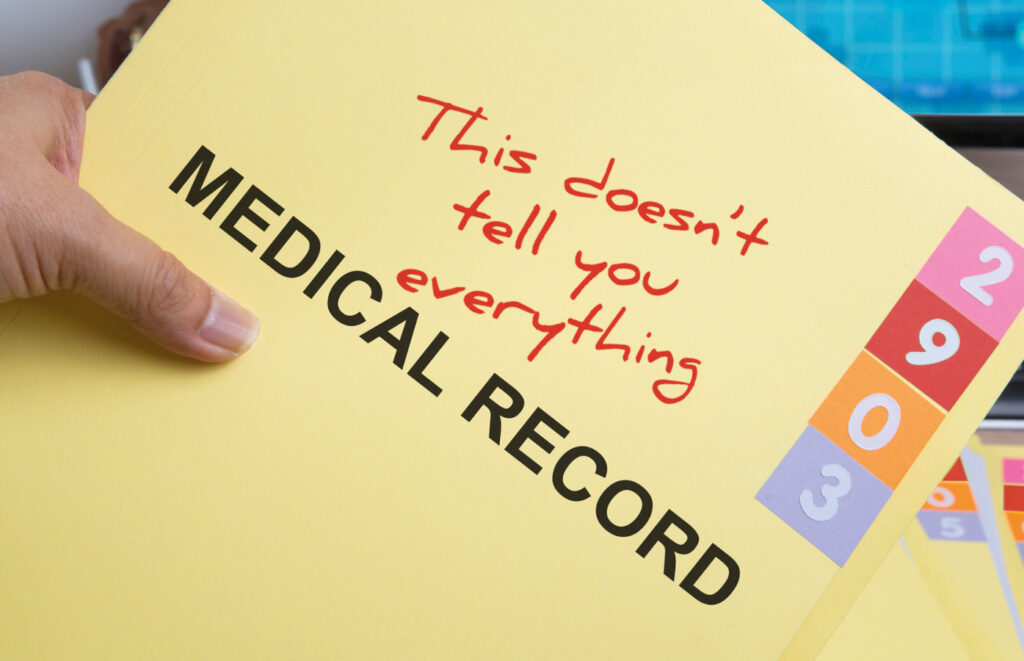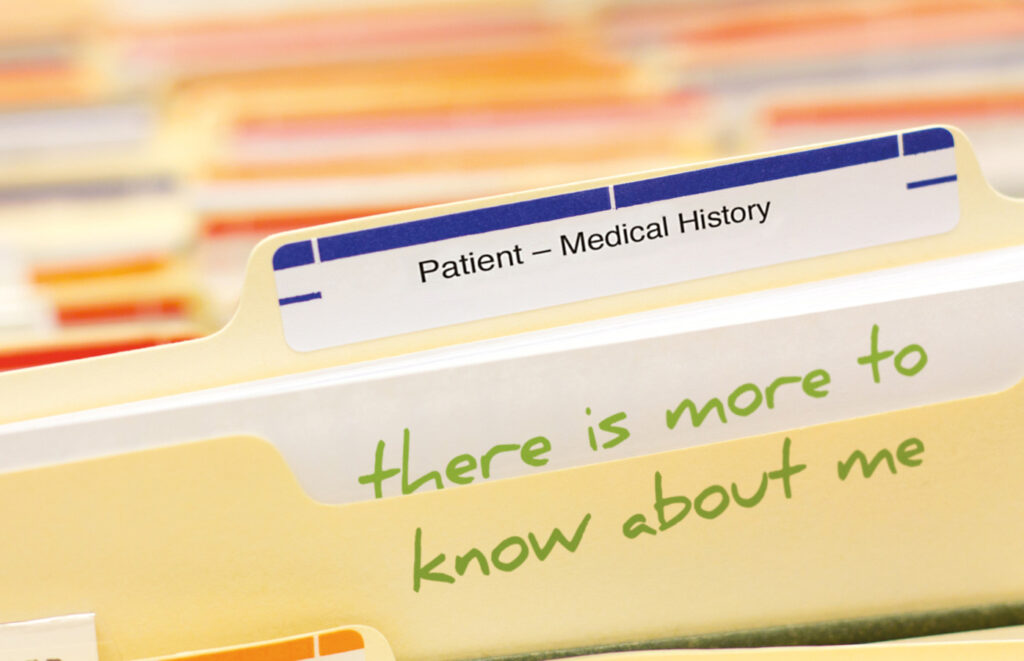My story (anonymous)
“Having the diagnosis helped me access different treatments. But unfortunately, it also limited my options for treatments as ‘they aren’t usual for your diagnosis’, and has led to constant dismissal and stigmatisation.”
Content warning: suicidal thoughts

Author wishes to remain anonymous
I was diagnosed in 2021, but never put on record. It was confirmed in 2023. I completed DBT-Informed Skills group late 2022 – early 2023.
Since the diagnosis was put on my file, there has been a dramatic shift in how mental health professionals have approached me and my crises. I was told I was a ‘chronic overthinker’ and that I was ‘repeatedly looking for issues, and created issues where there weren’t any’. I was told that if I hit crisis, I could call my CMHT (Community Mental Health Team), and yet every time I called I was dismissed.
I was told things like “people with your diagnosis always hit crisis so it’s not important”. I was told I needed to handle it alone and repeatedly told to just do my DBT skills. When I’d tell them DBT isn’t working, I’d be accused of not doing it at all or not trying hard enough.
These mental health professionals would also tell me they didn’t know what more to do with me and that I was complex.
He said ‘You don’t really want to die. You just want to make a statement’.
In July, I had hit crisis due to a breakdown in a friendship and a lack of a support network. This is the worst crisis I have had for years.
I reached out to my GP on two occasions who called my CMHT. I spoke with my CPN (Community Psychiatric Nurse) on the phone about my struggles and I asked for a medication review again. I asked to be seen in person but I was persistently refused. In August, I went through a break up which made my crisis more difficult.
Spoke to my CPN again, but she was dismissive. I asked what the plan was and she said there isn’t one and I needed to take some Promethazine and do DBT (dialectical behavioural therapy, a type of talking therapy), despite me telling her these aren’t working right now; these things didn’t help me when I was in a crisis
In August I called 111 and disclosed that I was feeling suicidal. Spoke t a mental health nurse who told me I was ‘too complex’ and he ‘did not know what to do with me’. He told me I was turned away for a reason and said “you don’t really want to die, you just want to make a statement”. He said this is a cry for help and was not anything serious.
I spoke with my GP after this, who spoke to my CMHT with me in the room and I had an emergency assessment with a support worker at my CMHT. I went over current life events that led to my crisis, and what I felt would help me. The next day, I saw my private psychotherapist, and she had concerns for my safety so spoke with CMHT out of hours.
No one had checked on me after this and I received a letter at the end of the month just stating that my request for a medication review and a meeting to make a safety plan had been declined.
Assessed without the label.
I feel as though this was a drastic change to the usual response I got from mental health professionals. Since my diagnosis, I was repeatedly turned away and told that I was not doing enough and that my feelings didn’t matter. I was told that I was too complex and nothing could be done and nothing I experienced was serious and it was just a ‘statement’. I received no support until I made an official complaint to the clinic manager. I asked this manager to look at me as an individual and not someone with a diagnosis of EUPD.
Since I have been assessed without the label, I was offered a safety planning appointment with a new CPN and a medication review with a mental health pharmacist. This again was a drastic change, and I was validated and comforted. I am now waiting to start medication.
It has helped me piece things together – but made treatments harder to access.
The EUPD diagnosis has really helped me piece together what problems I’ve been dealing with. It explains my struggles and was like a jigsaw puzzle coming together in my head. It has also allowed me access to DBT, which has been helpful when not used in a point of crisis. It has also helped me find my psychotherapist where I am now completing Schema therapy.
Having the diagnosis helped me access different treatments. But unfortunately, it also limited my options for treatments as ‘they aren’t usual for your diagnosis’, and has led to constant dismissal and stigmatisation. I have often been told I am dramatic and ‘trying to manipulate staff’.
I was dismissed as ‘attention-seeking’. All of this by mental health professionals.
Speak your truth: your own experiences can help create change
If you want to share your experiences around this diagnosis you can take part in Platfform’s Truth Project.
Platfform are campaigning for a review of the use of the diagnosis of PD. Add your voice to our call for change by sharing your story. We will share these with Welsh Government and use them to strengthen our campaign.
For more information, and to access the survey, click here.
If you are in a mental health crisis, please read this paragraph
If you have been affected by anything in this story and would like to talk to someone you can call Samaritans on 116 123. You can also call the national mental health support line for advice on 111 (press 2.)


